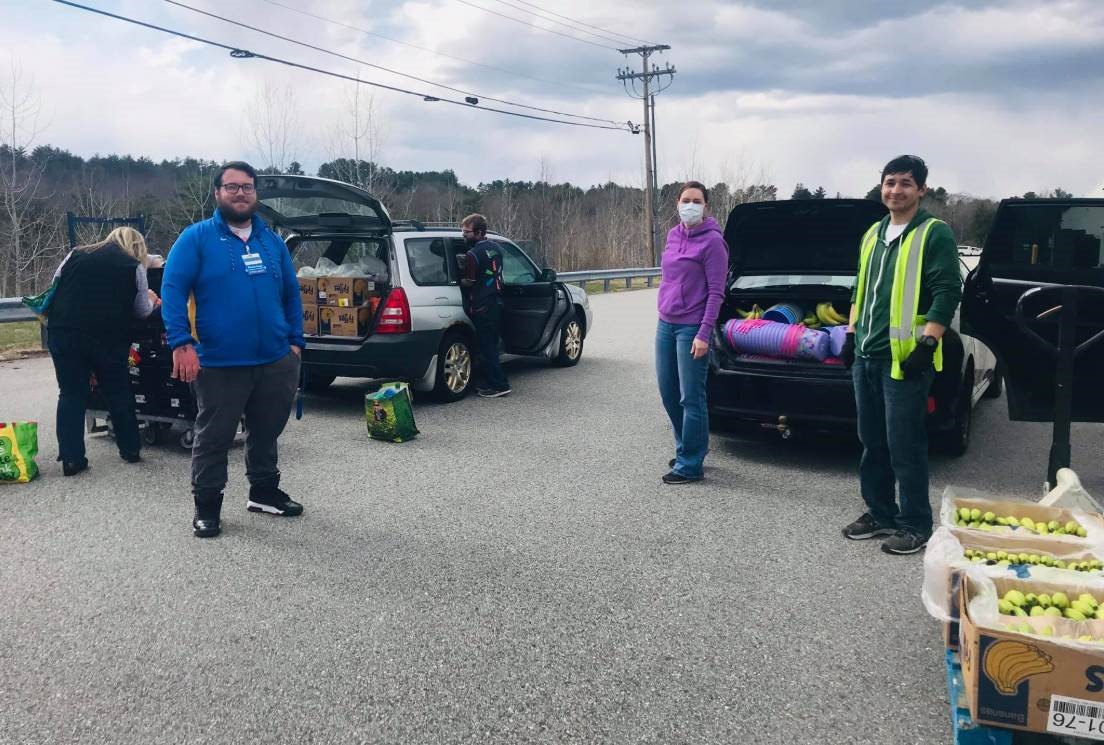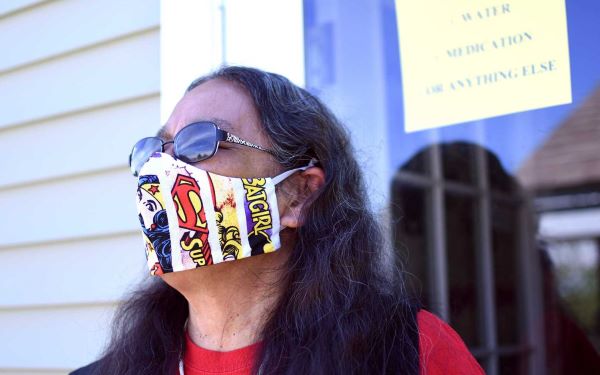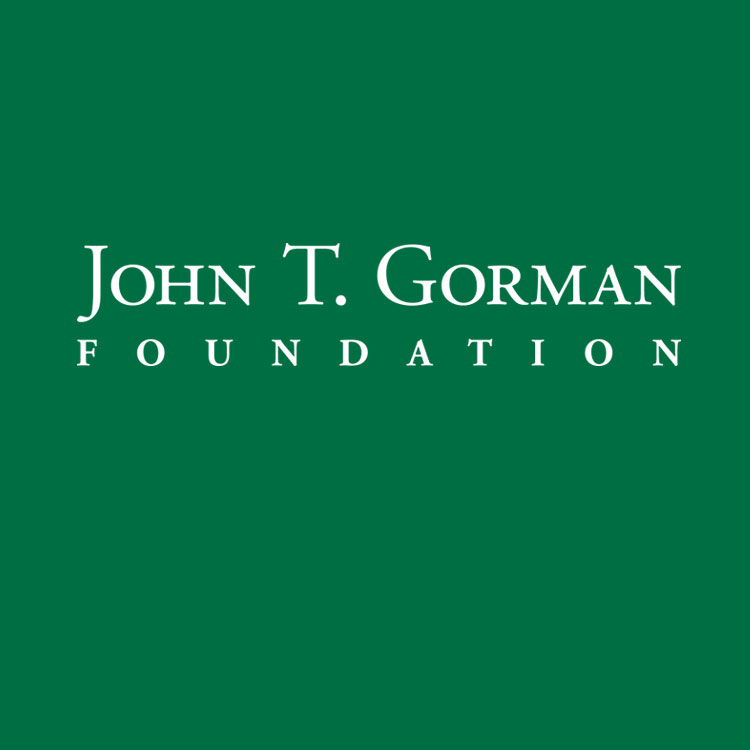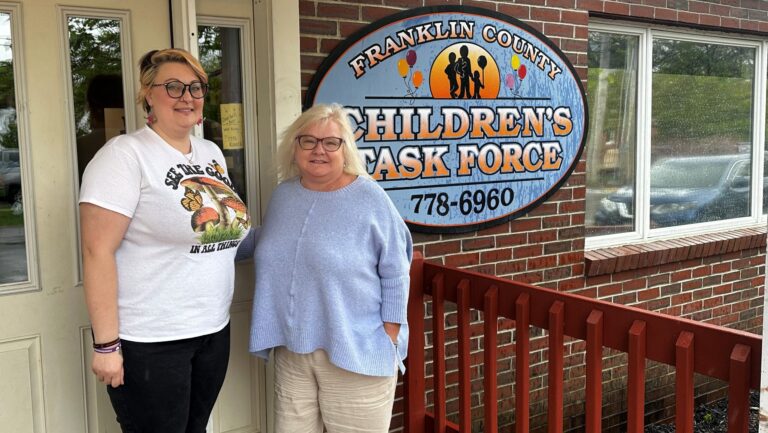As the pandemic stretches on, the John T. Gorman Foundation directs grants to address emerging concerns about domestic violence, the safety of children and families, and the well-being of Maine’s tribal communities

When the COVID-19 pandemic arrived in Maine this spring, the John T. Gorman Foundation quickly joined others in diverting resources to meet sudden emergency needs in the community, granting $500,000 for nonprofits to provide food and shelter to those in need. But as the pandemic persisted, the Foundation intentionally kept an ear to the ground to find the next area where its support would be most needed.
What it heard were rising concerns about domestic violence, the safety of children and families, and the well-being of Maine’s tribal communities. In response, the Foundation awarded an additional $500,000 in COVID Response Grants in July – $250,000 for domestic violence agencies across Maine and $250,000 for local organizations to connect with families in need. This included $155,000 for organizations serving Maine’s five tribal communities. The general operating support gives grantees flexibility to steer funding where it is most needed. (Full list of grantees available here.)
“During the COVID pandemic, homes are supposed to be a refuge – the one place you can go to feel completely safe. But the combination of social isolation and great stress over the last few months has raised serious concerns about the safety and well-being of many vulnerable households in Maine,” said John T. Gorman Foundation Chief Program Officer Nicole Witherbee. “These latest grants were made to help victims of domestic violence escape their abusers and ensure families can access the support they need to be safe and healthy. The Foundation feels fortunate to be able to support our partners’ critical work in these areas.”
Helping Survivors of Abuse and Domestic Violence
“What COVID has done is exacerbate already risky situations for survivors of abuse and domestic violence,” said Regina Rooney, Education and Communications Director at the Maine Coalition to End Domestic Violence (MCEDV). “Isolation is a key tactic of abusers and COVID has given them more leverage.”
The pandemic has offered more ways for abusers to keep their partners at home, where they can be controlled and kept away from the coworkers, friends and family who might notice a toxic relationship and offer to help. Along with the increased economic and emotional stress of the pandemic, it has become an especially dangerous situation.
Rooney said the number of calls to the MCEDV crisis line from April to June increased 20% from the previous year. At the same time, social distancing requirements have presented new challenges to the domestic violence network that offers guidance and shelter to those in need. In-person avenues to reach out to potential victims have been cut off. And, to keep numbers at safe levels, they have had to house fewer people in their group shelters.
Domestic violence organizations have used the Foundation funding to house survivors and their families at hotels and cover other personal expenses, like food and laundry. It has also allowed them to access secure online platforms to connect with survivors virtually and continue support groups, as well as to purchase personal protective equipment – expenses that organizations couldn’t have anticipated when making their budgets. “The Foundation has stepped into a pretty significant gap,” Rooney said.
Safely Assisting Families
Stress and isolation have also made a more difficult situation for Maine’s low-income families – as well as for the organizations working to provide them assistance.
“Virtual doesn’t always do it,” said Christine Hufnagel, Director of Family Service at Community Concepts, which manages a range of programs for low-income children and families in Androscoggin, Franklin, and Oxford Counties. “Many families are struggling with a lack of in-home services we were regularly providing before the pandemic.” Face-to-face contact with families and children is important to see how everyone is doing and assess what they need, she said.
Foundation funding has allowed Community Concepts and other Community Action Programs to touch base with families in person while following CDC social distancing requirements. During these “driveway visits,” professionally trained staff deliver items like diapers, food, and laundry detergent. While at the door, they are able to have conversations with parents, see how children are doing, and offer support. They are also distributing materials on safe sleep practices for infants and the Period of PURPLE Crying, an evidence-based model for preventing Shaken Baby Syndrome.
Families have welcomed the visits. “They’re feeling the pressure. The longer this goes on, people are wanting contact. They’re excited and grateful to see someone at the door and don’t want them to go,” Hufnagel said.
Supporting Well-Being in Tribal Communities

Historically marginalized and already facing inequities around health and income, Maine’s Native population has emerged as being especially at risk for the broader effects of COVID-19.
“Native people don’t fare well in pandemics. Historically, many of the reasons for the disparities was lack of supplies, lack of access,” said Lisa Sockabasin, Director of Programs and External Affairs at Wabanaki Public Health, which serves all five tribal communities in Maine. “So we knew early on that we needed to show our communities that we were going to work tirelessly to make sure they had the supplies they needed not just to be comfortable, but to feel taken care of.”
Wabanaki Public Health has directed Foundation funding to three areas: securing essential supplies that have been difficult for tribes to procure, like food, cleaning supplies, and water (two communities do not have access to safe drinking water); supports to elders, families and children isolated at home; and ways to safely continue cultural practices.
Highlights of these efforts have included a program in which seniors hang colored paper on their doors to indicate items or assistance they need, and the distribution of thousands of books, including many by Wabanaki authors, to families to encourage literacy and bonding.


